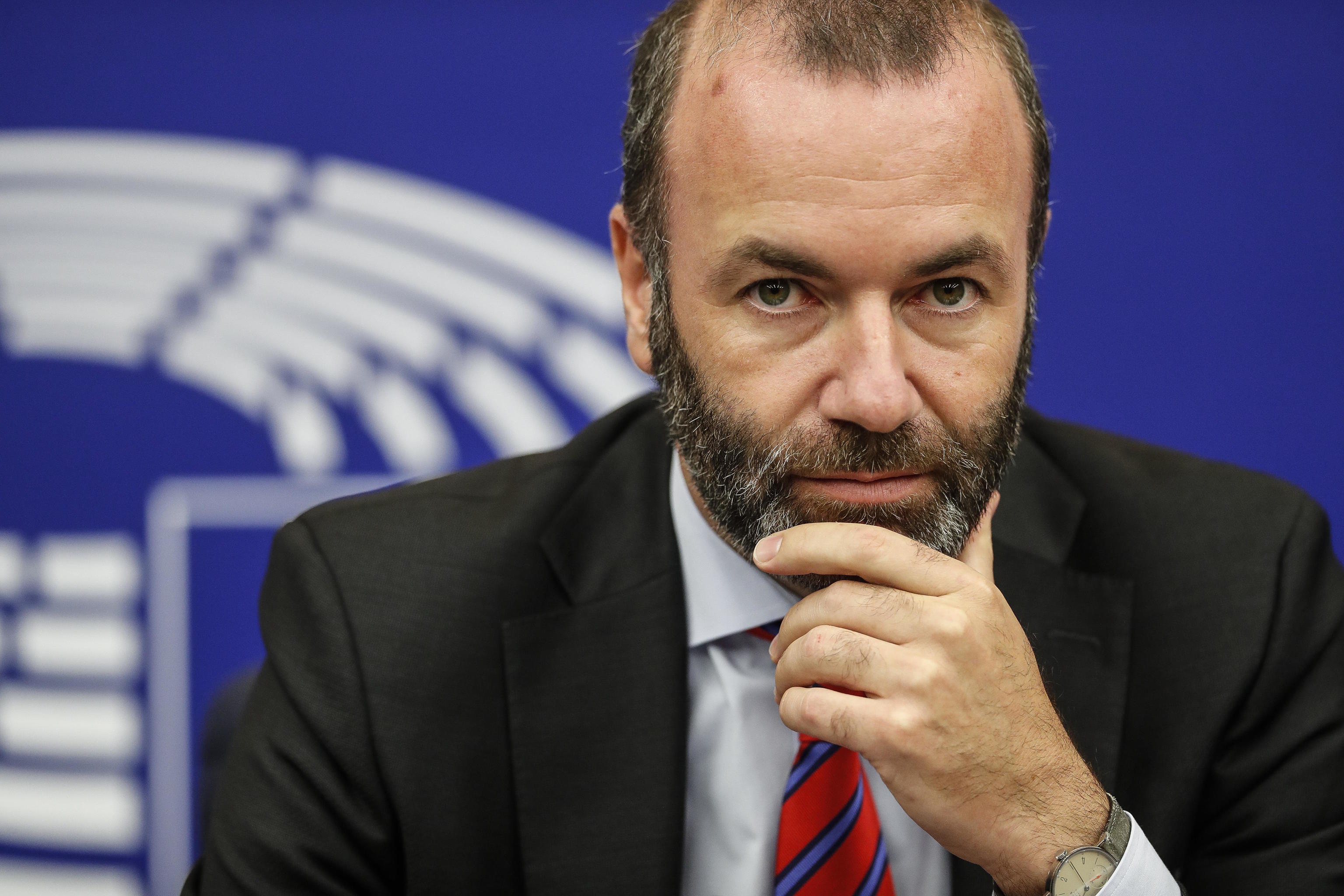"Faced with the new uncertainty coming from the White House, Europe must act united. And [Pedro] Sánchez is becoming the weak point of Europe." Manfred Weber, President of the European People's Party, is this harsh in his criticism of the Spanish Prime Minister in statements to EL MUNDO.
He completely disagrees with the Spanish Prime Minister's position on Defense, adding that "he is willing to damage European unity just to survive in office." "He's like Orban!", Weber emphasizes, drawing a parallel with the President of Hungary, who is not only close to Donald Trump but also pro-Russian. Rarely has the head of the main party in the EU been so forceful.
His statements to this newspaper come just before Sánchez goes to Congress to report on his Defense plans, something he has not done yet despite two crucial presidents' summits in Brussels this month alone. In the second summit, last Thursday, the President not only made clear his reluctance to significantly increase national military spending, as Brussels demands, but also criticized the EU for using the term "rearmament" and emphasized efforts to broaden the definition of security to mask spending figures.
This has already angered several European partners, both from the north and close to Russia, as well as others not as high on the map. Diplomatic sources state a "lack of solidarity" is perceived from Sánchez, and that at the mentioned Council meeting last week, "some criticisms were heard," while others confirm that "the Spanish President is desperately trying to inflate his military spending figures."
Weber's statements not only follow this line but also highlight the importance Spain, the People's Party, and the figure of the Popular Party's own president, Alberto Núñez Feijóo, have within the EPP. Undoubtedly, they provide strong support for Génova in its battle with the government, especially after the President of the European People's Party decided to hold the party congress in Valencia.
This move was seen in Brussels as a rebuke by the German, especially considering that Feijóo had almost confirmed the event's relocation to Madrid. The PP President stated that the Congress of Deputies refused to change the votes coinciding with the EPP meeting scheduled for late April, fearing that Sánchez might take advantage of the absence of the Popular Party to introduce and pass controversial measures.
Therefore, he requested the event's relocation, citing the weakness of the President of the Valencian Community, Carlos Mazón, and the fear that protests over the handling of the dana storm might overshadow a meeting where Weber will be reelected president. "The congress will be a success, and Valencia is a wonderful city," insist those in the EPP, pointing to already committed expenses and reservations as reasons preventing the move. Feijóo, for his part, will attend the start of the EPP meeting, return to Madrid for the Lower House session, and try to make it back for the closing.
The PP inquires about the distribution of minors
On another note, the PP delegation in Brussels yesterday asked the European Commission to comment on the agreement between the Government and Junts regarding the distribution of unaccompanied minor migrants. In their view, it "clearly violates the principles of solidarity and proportionality that govern the EU's migration policy."
In a parliamentary question presented by the PP spokesperson in the European Parliament, Dolors Montserrat, and MEP Juan Ignacio Zoido, the party denounces that the distribution is "rigged." "Catalonia, with eight million inhabitants, will only host between 20/30 of the 4,000 unaccompanied minor migrants currently in the Canary Islands, while the Community of Madrid, with its seven million inhabitants, or Andalusia with its eight million, will have to receive more than 700," they point out from the party.
